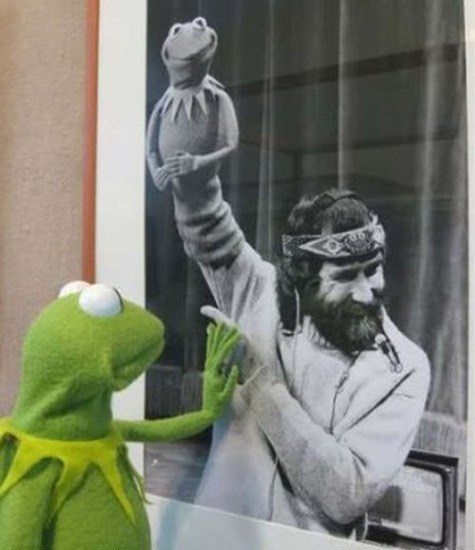Down with Jerks!
Author
Warren Wilansky
Date
May 4, 2017

Rethinking the road to success
Jerks have been on my mind lately.
The tech industry is full of stories about the jerks at the top. And the narrative usually fits into the “nice guys finish last” cliche, where success is seen as a result of being ruthless, and the ends justify the means.
But I think we need to stop falling for this story. You can be ambitious without being cruel.
I want to encourage people to think about what success really means and choose a kinder path to reach their goals.
“It’s not binary. You can be decent and gifted at the same time.”
– Steve Wozniak
Take another path
The world will always have jerks, of course, and there are some environments where they thrive. But we can actively create spaces where it doesn’t pay to be a jerk. Where we celebrate alternate narratives of success. Places where you’re encouraged to check your ego at the door.
I often find that networking events bring out a lot of “spin” in people. Everyone’s always super busy, working on amazing projects, and generally kicking ass. It’s natural to be on the defensive when you’re meeting someone for the first time, and to present yourself as more confident than you actually are.
That’s why I’ve always really enjoyed the events that the Bureau of Digital produces. Unlike high-profile conferences with star speakers, their retreats focus on peers learning from each other in very open, honest conversation.
It’s an environment where you’re encouraged to let your guard down and admit what you’re unsure of. By creating an atmosphere where people are allowed to be uncertain, you’re opening up the possibility of actually learning something valuable.
“He who asks a question is a fool for a moment; he who does not ask a question remains a fool forever.”
– Chinese proverb (or was it Mark Twain…?)
Lay off the hustle
Here’s a word that’s really been irritating me – HUSTLE. It’s gone from having a very negative connotation of cheating and deception to being a positive character trait. If you hustle hard enough, soon you’ll be “crushing” it, and that’s somehow a good thing. But why crush, when you can build?
How about we all just lay off the hustling, slow down a second and think about what we’re putting out there in the world. Let’s solve actual problems by making things that are meaningful, useful and interesting. Let’s strive to do work that’s important, not just a scheme to get rich quick.
#FyreFestival employees speak out about the disaster: It was incompetence on an inconceivable scale https://t.co/kYNzqsWo0o pic.twitter.com/PpTH6JOolM
—
Variety (@Variety) May 4, 2017
#hustle is not enough
Redefine success
Part of the reason we have jerks is a commonly-held definition of success that values fame, fortune, and conquering the competition. It’s a definition that values popularity and domination above empathy and quality.
I prefer to think of success as earning respect for what you do and how you do it. Creating something that serves a need without taking away from someone else. Sharing your knowledge with others, and learning from others.
Take inspiration where you can
I have to thank my friend Avery Swartz (who I actually met at a Bureau event), for her presentation at our Breakfast Club last month.
She brought up the fact that we tend to idolize jerks for their accomplishments, and suggested that we do a bit more work to seek out role models who manage to do good work while avoiding “crushing” others in the process.
To be honest, I’ve never really been one to look to role models. But it’s an interesting exercise to think of a few people who have done well for themselves – and others – without stepping on people.
So even if you’re not a “role model” kind of person, just try thinking of 3 people who inspire you, not only for what they’ve done but how they’ve done it.
Here are mine:

Jim Henson
Jim Henson completely revolutionized puppetry and television entertainment, and he did it with humour and empathy. He paid his dues working in commercials and doing guest spots on talk shows for many years before launching The Muppet Show, Sesame Street, and major motion pictures. He was known as a kind leader who (not surprisingly) encouraged silliness and chaos.
That’s a management style I can get behind.

Joe Maddon
Joe Maddon might be the greatest manager in baseball. His management style is focused on bringing out the best in his players with respectful communication, and a healthy dollop of fun (I’m sensing a theme here). And he makes sandwiches for his team – maybe that’s the secret to breaking The Cubs’ 108-year curse.

Ruby Reicher
My grandfather is my business role model. He once said to me:
“I could have been a more successful businessman, but I was more concerned about my reputation.”
He moved to Canada from a farm in Romania just after the First World War, and started working in a tie factory sweeping the floors. He took such pride in it that when the boss got back into the office after being away on business, he commented on how clean his factory was. He worked so hard and learned the business so well that decades after starting with a broom in hand, he and two other partners bought the business.
He always took pride in treating his employees well. When there was talk of a union forming, he approached the workers, and came up with a deal that was fair to everyone involved. A union never formed, because it didn’t have to.
Once, while walking down a path in the Laurentiens with a friend, he heard someone yell out, “Hi Ruby!” His friend joked, “Well, seems they even know you in the forest!”. He was always proud that when he walked down St. Catherine Street, that he would get stopped on every block to talk to people.
For my grandfather, success was all about the relationships he created with people, and that’s a lesson I’ve taken to heart.
Here are some great reads if you want to keep thinking about jerks:
Jerks and the Startups they Ruin
Dan Lyons, New York Times, “Bro culture […] values speedy growth over sustainable profits, and encourages cutting corners, ignoring regulations and doing whatever it takes to win.”
A Theory of Jerks
Eric Schwitzgebel, Aeon, “We need a theory of jerks. We need such a theory because, first, it can help us achieve a calm, clinical understanding when confronting such a creature in the wild.”
Why it Pays to Be a Jerk
Jerry Useem, The Atlantic, “Act like you’re the smartest person in the room, a series of striking studies demonstrates, and you’ll up your chances of running the show.”
